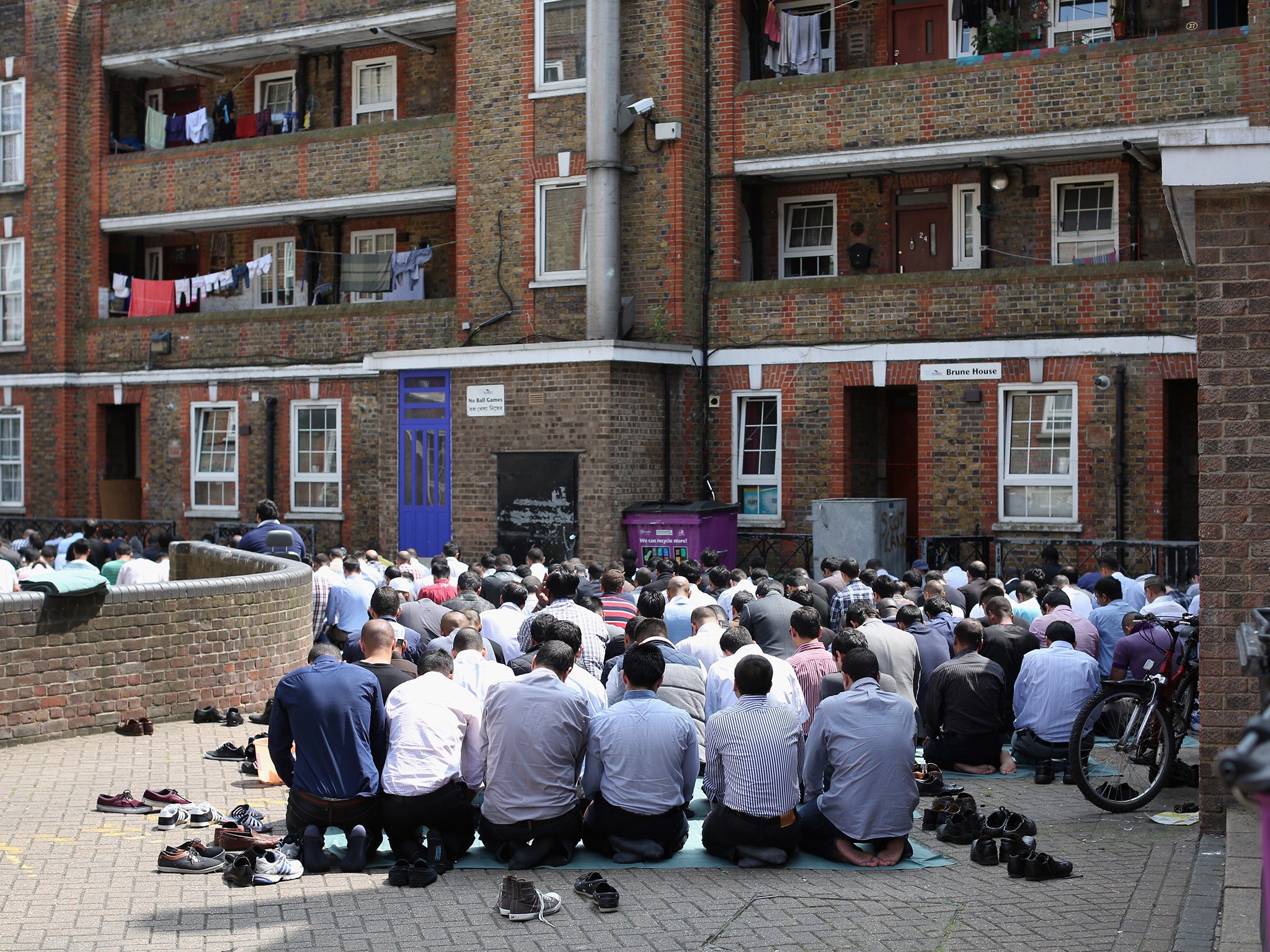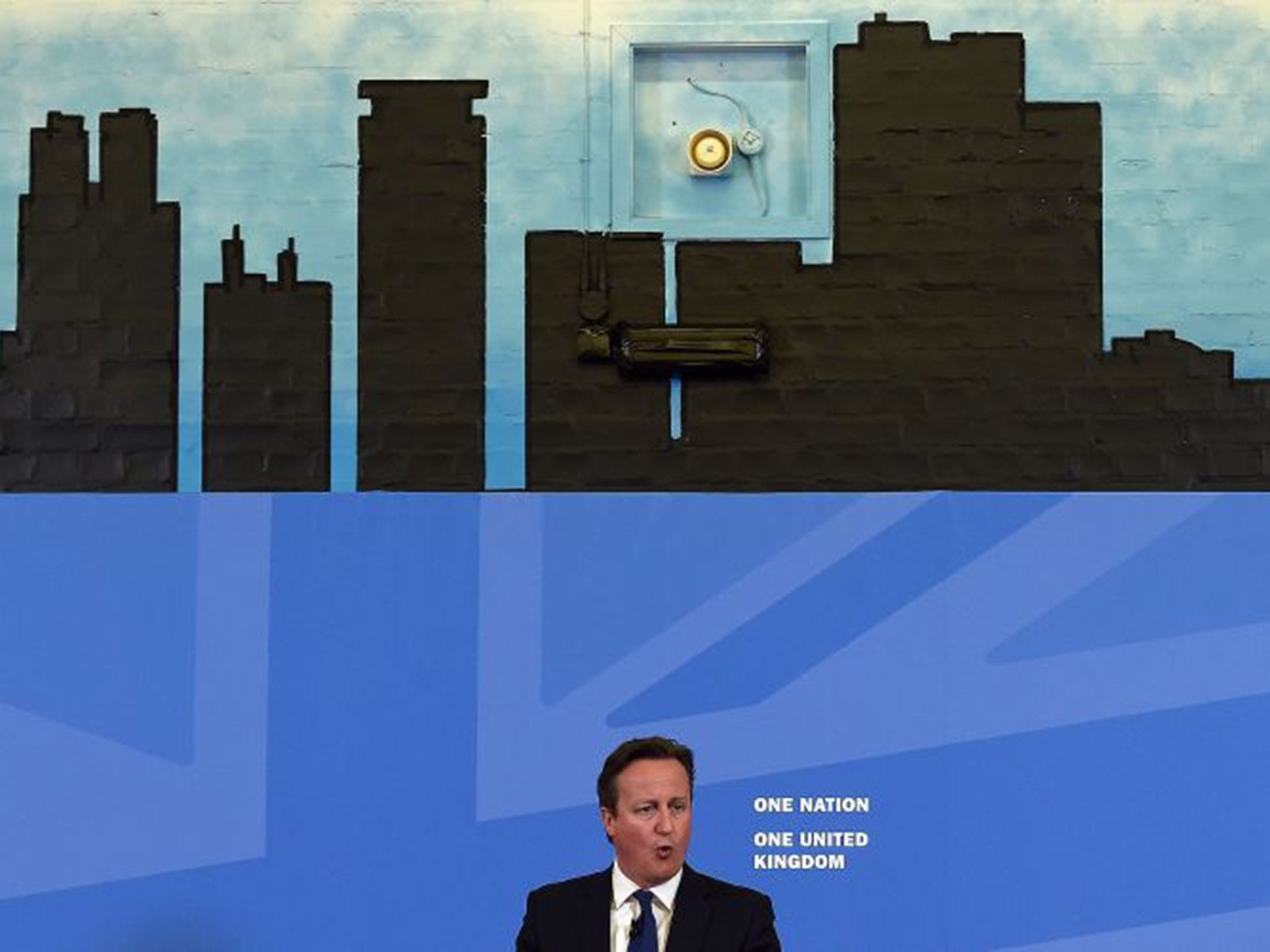David Cameron: We must end Muslim 'segregation' to tackle 'scourge' of extremism
The PM set out a strategy to tackle 'poisonous ideology' of fundamentalism

Muslim communities in parts of Britain must no longer be allowed to exist in “segregation” if the country is to successfully tackle the “scourge” of Islamic extremism, David Cameron has warned.
In a key note speech setting out the Government’s strategy to tackle what he described as the “poisonous ideology” of fundamentalism, Mr Cameron said schools and housing in areas with large Muslim populations must become properly merged with neighbouring white communities.
He called for schools to integrate teaching and share facilities to ensure classes were mixed and said the Government must start asking “searching questions” about social housing to avoid segregated estates where people come from a “single minority ethnic background”.
“It cannot be right that people can grow up and go to school and hardly ever come into meaningful contact with people from other backgrounds and faiths,” he warned. “That doesn’t foster a sense of shared belonging and understanding – it can drive people apart.”

Mr Cameron set out a range of measures the Government would pursue to tackle what he called the “struggle of our generation”. These included:
• Giving parents the power to ask for their children’s passports to be withdrawn or blocked if they fear they could leave the UK to join Isis.
• Compelling internet companies to tackle the “scourge” of online radicalisation in the same way they tackle child abuse images – by censoring search results and shutting down extremist websites.
• Setting up a review, led by the troubled families’ tzar Louise Casey, to examine how to use Government money to support a new “Cohesive Communities Programme” to improve jobs and education prospects in Muslim communities and promote integration.
Controversially, Mr Cameron also said that Britain must become less tolerant of those who were hostile to “basic liberal values” such as “equal rights, regardless of race, sex, sexuality or faith” even if they did not condone violent extremism.
Muslim groups questioned whether this was compatible with Mr Cameron’s aim of promoting freedom of speech.
He also launched a strong attack on the National Union of Students for “allying itself” with the Muslim advocacy group Cage, which he said had previously expressed support for the “jihad in Iraq and Afghanistan”.
“When you choose to ally yourself with an organisation like Cage, it really does in my opinion shame your organisation and your noble tradition of campaigning for justice,” he said. The NUS said it had no relationship with Cage and would not be establishing any relationship with the group.
Mr Cameron said it should no longer be enough for extremists to say they opposed Isis for them to prove that they were not a threat. This, he said, would be setting the bar for acceptability “ludicrously low”, and groups should be expected also to condemn conspiracy theories, anti-semitism and sectarianism, he said.

He added that a new Extremism Bill would include “narrowly-targeted” powers to tackle these “facilitators and cult leaders”.
“We need to put out of action the key extremist influencers who are careful to operate just inside the law but who clearly detest British society and everything we stand for,” he said.
But Mr Cameron acknowledged many young Muslims did feel alienated from wider British society and pledged that the Government would do more to improve life chances and let them know “there is a place for you” in Britain.
“I understand that it can be hard being young and that it can be even harder being young and Muslim,” he said.
“I know that at times you are grappling with huge issues over your identity, neither feeling a part of the mainstream nor a part of the culture from your parents’ background. And I know that for as long as injustice remains ... you may feel there is no place for you in Britain.